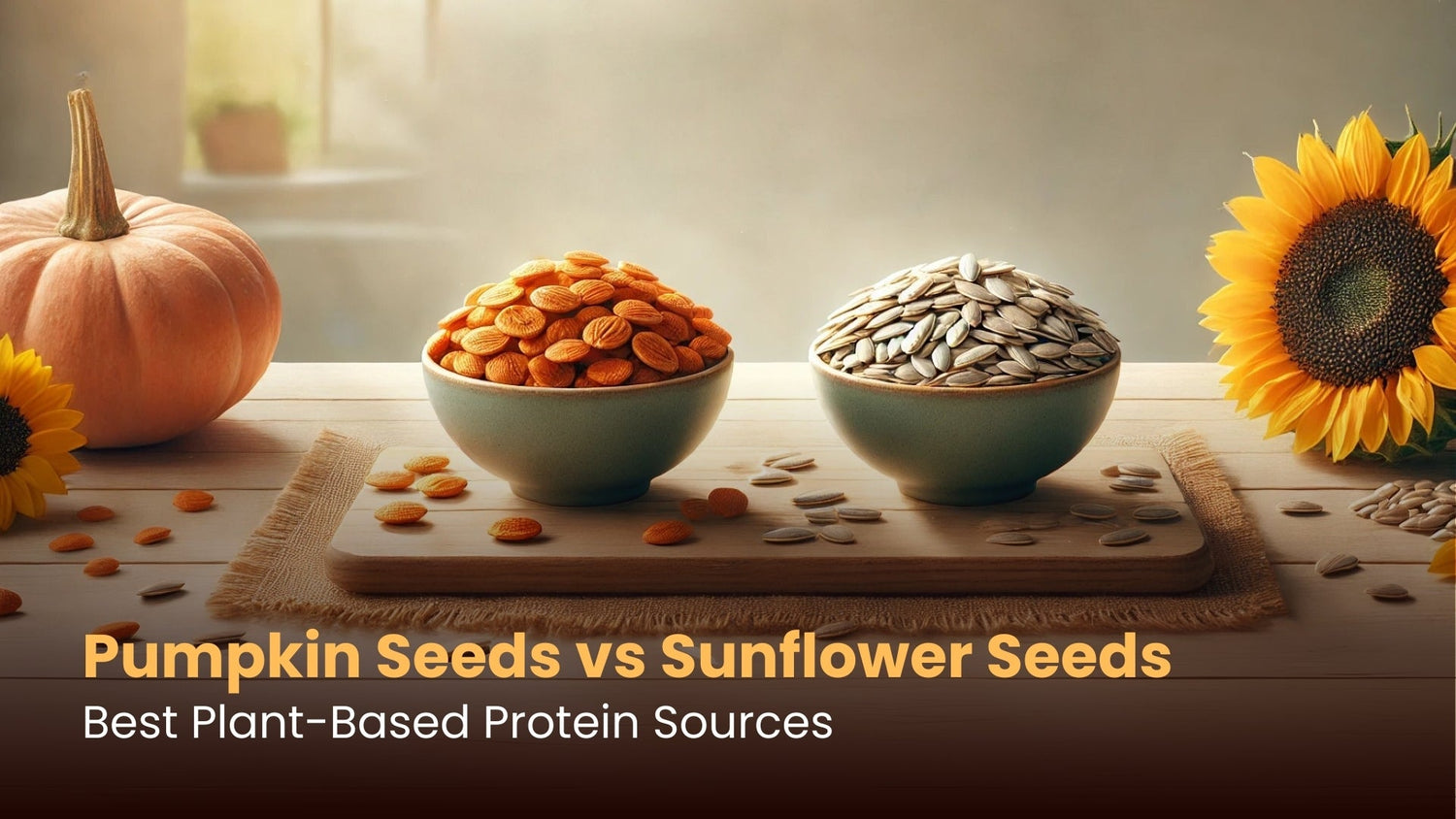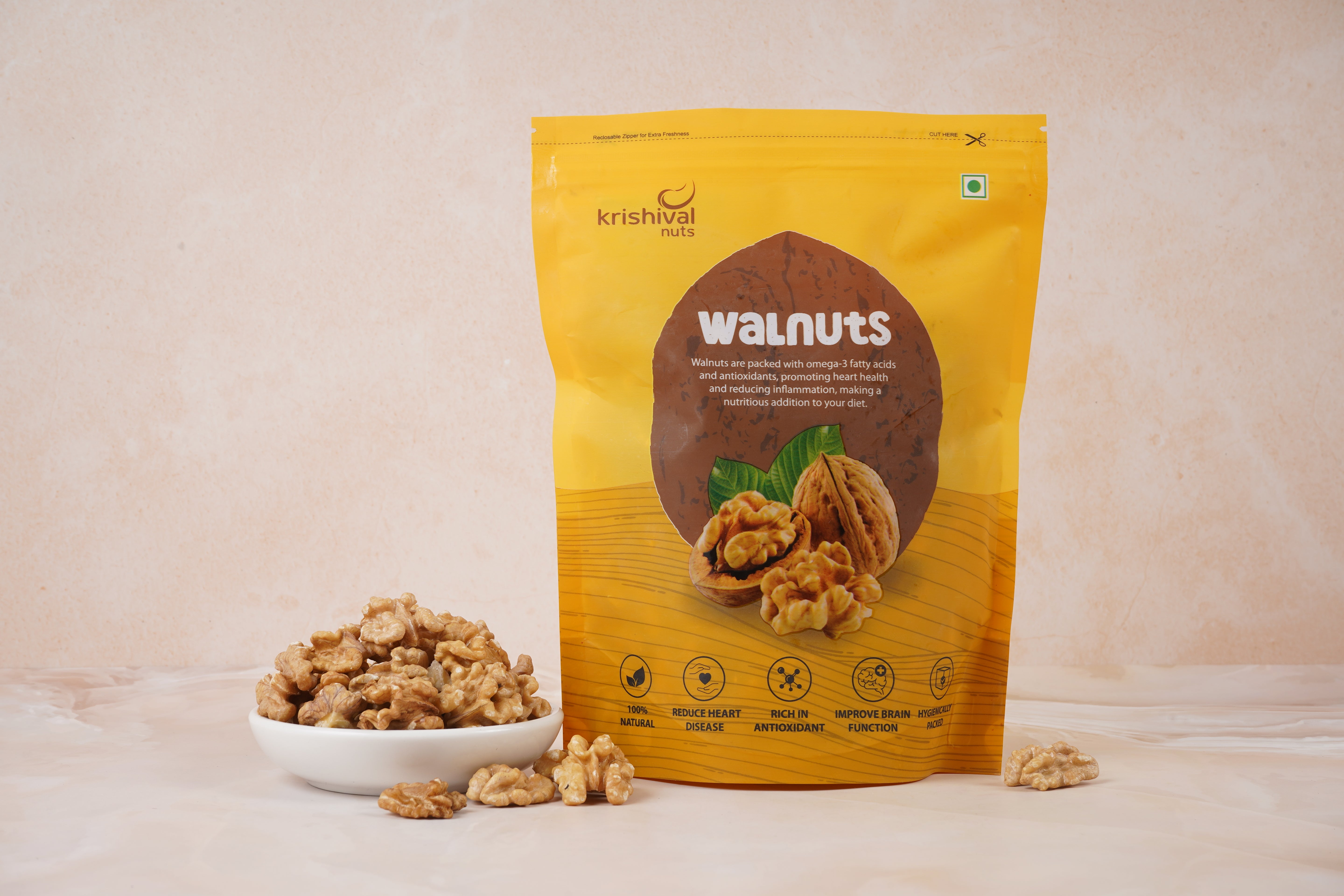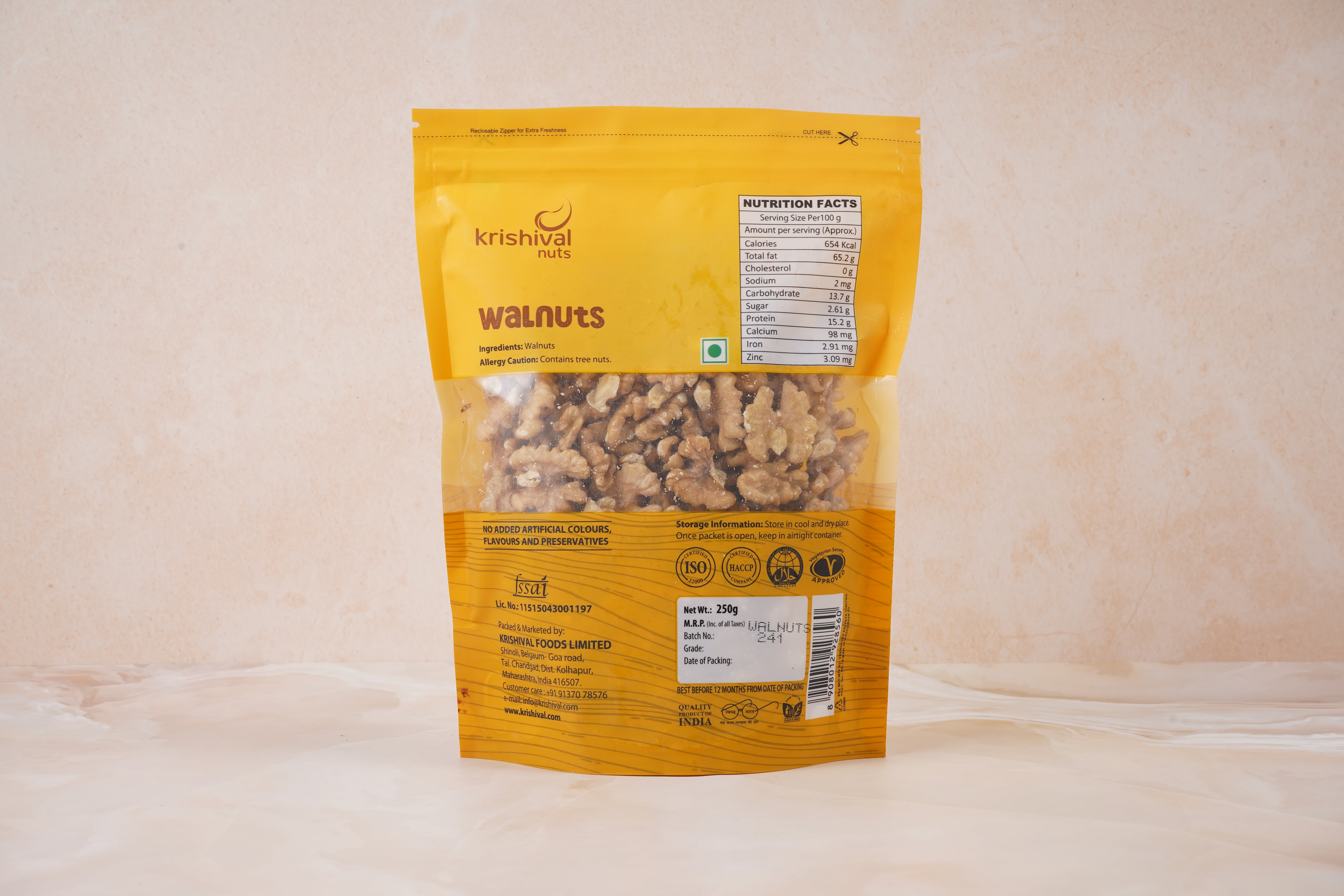Pumpkin seeds and sunflower seeds are among the most popular snacks that offer an abundance of health benefits. Both are rich in essential nutrients, including protein, healthy fats, and fiber, but each seed has its unique advantages. Understanding how pumpkin and sunflower seeds differ nutritionally can help you make the right choice based on your specific health goals. Whether you're looking for a protein boost, heart health support, or better digestion, both seeds have something valuable to offer.
Table of Contents
- Introduction
- Nutritional Breakdown: Pumpkin Seeds vs Sunflower Seeds
- Vitamins and Minerals: The Nutrient Load
- Health Benefits: Which Seed Packs More Punch?
- How to Include Pumpkin and Sunflower Seeds in Your Diet
- Which Seed is Better for You?
- Conclusion
-
FAQs
Nutritional Breakdown: Pumpkin Seeds vs Sunflower Seeds
Calories and Fat Content
Both pumpkin and sunflower seeds are high in calories and fats, essential for energy. However, their fat composition differs slightly:
-
Pumpkin Seeds: An ounce (28 grams) contains around 151 calories and is rich in omega-3 fatty acids, which are beneficial for heart health.
-
Sunflower Seeds: An ounce of sunflower seeds contains 164 calories and is higher in omega-6 fatty acids, which play a role in various bodily functions but require balance with omega-3 intake.
Protein Powerhouse
Protein is essential for maintaining muscle health, and both seeds are good sources:
-
Pumpkin Seeds: Offer 7 grams of protein per ounce, making them ideal for those looking to increase protein intake.
-
Sunflower Seeds: Provide about 6 grams of protein per ounce, slightly less than pumpkin seeds but still a great plant-based protein source.
Fiber Comparison
Fiber plays a crucial role in digestion and managing blood sugar levels:
-
Pumpkin Seeds: Provide 1.1 grams of fiber per ounce, which contributes to digestive health.
-
Sunflower Seeds: Contain 2.4 grams of fiber per ounce, making them the superior choice when it comes to fiber content.
Vitamins and Minerals: The Nutrient Load
Magnesium and Zinc in Pumpkin Seeds
-
Pumpkin Seeds: A rich source of magnesium and zinc, pumpkin seeds support heart health, muscle function, and immune support. They offer 168 mg of magnesium and 2.1 mg of zinc per ounce.
Vitamin E and Selenium in Sunflower Seeds
-
Sunflower Seeds: High in Vitamin E and selenium, sunflower seeds contribute to skin health and antioxidant protection. They provide 7.4 mg of Vitamin E and 23.4 mcg of selenium per ounce.
Vitamins and Minerals: The Nutrient Load
Both pumpkin seeds and sunflower seeds are nutrient-dense, providing a wide array of vitamins and minerals that contribute to overall health. Each seed excels in different areas, supporting various bodily functions.
Pumpkin Seeds: These seeds are an excellent source of magnesium, a mineral essential for muscle function, heart health, and bone strength. One ounce of pumpkin seeds provides around 168 mg of magnesium, which is roughly 40% of the recommended daily intake. They are also rich in zinc, offering 2.1 mg per ounce, which supports immune function, skin health, and wound healing. Additionally, pumpkin seeds are a good source of iron, an essential mineral for transporting oxygen throughout the body.
Sunflower Seeds: Sunflower seeds shine with their high vitamin E content, a powerful antioxidant that protects the body from oxidative stress and supports skin health. One ounce of sunflower seeds provides about 7.4 mg of vitamin E, covering a significant portion of your daily requirement. These seeds are also packed with selenium, an essential mineral for thyroid function and antioxidant defense, providing 23.4 mcg per ounce. Moreover, sunflower seeds contain copper and manganese, both of which are important for bone health and the proper functioning of enzymes in the body.
Health Benefits: Which Seed Packs More Punch?
Both pumpkin seeds and sunflower seeds offer impressive health benefits, but each seed has unique advantages depending on what you are looking to achieve for your health.
Pumpkin Seeds: Thanks to their rich content of magnesium, omega-3 fatty acids, and zinc, pumpkin seeds offer various heart-healthy benefits. Magnesium helps regulate blood pressure and supports muscle function, while omega-3 fatty acids contribute to lowering cholesterol and reducing the risk of heart disease. Additionally, zinc supports the immune system and helps with the healing of wounds, making pumpkin seeds an excellent choice for those seeking to enhance their immune health and heart function. Pumpkin seeds also promote better sleep due to the presence of tryptophan, an amino acid that helps produce melatonin, the sleep-regulating hormone.
Sunflower Seeds: These seeds are particularly beneficial for skin health due to their high vitamin E content. Vitamin E is an antioxidant that helps protect the skin from damage caused by free radicals and environmental factors like UV rays. This makes sunflower seeds an excellent choice for individuals seeking to improve their skin’s appearance and prevent signs of aging. Sunflower seeds also support heart health with their omega-6 fatty acids, which, when consumed in balance with omega-3s, help reduce bad cholesterol levels. Additionally, the fiber content in sunflower seeds makes them effective for digestion and weight management by promoting satiety and improving digestive regularity.
Verdict: While both seeds are nutrient-rich, pumpkin seeds offer a broader range of benefits for heart health, immune support, and better sleep. On the other hand, sunflower seeds excel in supporting skin health, providing antioxidant protection, and improving digestion due to their fiber content. Depending on your specific health goals, both seeds can be valuable additions to your diet.
How to Include Pumpkin and Sunflower Seeds in Your Diet
Both pumpkin and sunflower seeds can be easily incorporated into your daily meals, providing an easy way to boost your nutrient intake. Here are some simple ideas:
Pumpkin Seeds
-
As a Snack: Enjoy a handful of pumpkin seeds on their own as a healthy and satisfying snack.
-
In Salads: Add pumpkin seeds as a crunchy topping to salads for an extra boost of protein and healthy fats.
-
In Oatmeal or Yogurt: Sprinkle pumpkin seeds over your morning oatmeal or mix them into your yogurt for added texture and nutrition.
-
In Baking: Use pumpkin seeds in baking recipes, such as in homemade bread, muffins, or granola bars, to increase fiber and protein content.
Sunflower Seeds
-
As a Snack: Sunflower seeds are perfect for munching between meals. You can enjoy them plain or lightly salted.
-
In Smoothies: Blend sunflower seeds into your smoothies for a creamy texture and extra healthy fats.
-
In Salads: Sprinkle sunflower seeds on top of salads for a nutty crunch, enhancing both flavor and nutrition.
-
In Baked Goods: Sunflower seeds can be added to muffins, cookies, or breads to provide extra fiber and nutrients.
-
In Energy Bars: Combine sunflower seeds with other superfoods like oats, honey, and dried fruits to make homemade energy bars.
Both seeds are versatile and can easily be added to meals, snacks, and desserts, making them a great addition to any diet.
Which Seed is Better for You?
When deciding between pumpkin and sunflower seeds, it ultimately depends on your specific health goals and dietary preferences.
Pumpkin Seeds are an excellent choice if you’re looking for a higher protein content and a good source of omega-3 fatty acids. They are also rich in magnesium and zinc, which are essential for heart health, muscle function, and immune support. If you're focusing on increasing your protein intake, managing stress, or supporting your overall heart health, pumpkin seeds are a great option.
Sunflower Seeds, on the other hand, are higher in fiber and Vitamin E, making them an ideal choice for improving digestive health and promoting healthy skin and hair. The fiber content in sunflower seeds helps keep you full longer, making them a good option for weight management. Additionally, the high levels of Vitamin E provide antioxidant protection, which is great for maintaining youthful, healthy skin.
Conclusion
Both pumpkin seeds and sunflower seeds offer a variety of health benefits, each excelling in different areas. Pumpkin seeds are rich in protein, omega-3 fatty acids, and minerals like magnesium and zinc, making them ideal for heart health and muscle support. On the other hand, sunflower seeds are high in fiber and Vitamin E, which help with digestion, skin health, and overall wellness. Depending on your specific health goals, incorporating both seeds into your diet can provide a balanced and nutrient-dense snack. For high-quality, premium seeds, Krishival offers a wide selection of products that can fit seamlessly into any healthy eating plan.
FAQs
-
Are pumpkin seeds good for weight loss?
Yes, pumpkin seeds are a great option for weight loss. They are high in protein and healthy fats, which can help keep you feeling full and satisfied for longer, reducing the urge to snack on unhealthy foods. -
Can sunflower seeds help with cholesterol?
Sunflower seeds are rich in omega-6 fatty acids and Vitamin E, both of which are beneficial for heart health. Regular consumption can help lower bad cholesterol (LDL) levels, supporting overall cardiovascular well-being. -
How can I store pumpkin and sunflower seeds to keep them fresh?
Both pumpkin and sunflower seeds should be stored in an airtight container in a cool, dry place, away from direct sunlight. Refrigerating or freezing them can also help preserve their freshness for a longer period. -
Are pumpkin seeds good for skin health?
Yes, pumpkin seeds are rich in zinc and magnesium, both of which play a key role in maintaining healthy skin. Zinc, in particular, helps with skin healing, preventing acne, and reducing signs of aging. -
Can sunflower seeds help with hair growth?
Yes, sunflower seeds are packed with Vitamin E, which helps nourish the scalp and promote healthy hair growth. Vitamin E also protects the hair follicles from oxidative damage, supporting overall hair health. -
Can I eat pumpkin seeds every day?
Yes, pumpkin seeds can be eaten every day in moderation. They provide a range of essential nutrients, including protein, magnesium, and omega-3s, which can benefit your overall health when included as part of a balanced diet. -
What’s the difference between raw and roasted sunflower seeds?
Raw sunflower seeds retain more of their natural enzymes and nutrients, while roasting them enhances flavor but can diminish some of the vitamin content. Both types are nutritious, but raw seeds may offer more of the seed's original health benefits. -
Do pumpkin seeds contain iron?
Yes, pumpkin seeds are an excellent source of iron, which is essential for producing red blood cells and maintaining healthy oxygen levels in the body. They are especially beneficial for those on plant-based diets who may need more iron. -
Are sunflower seeds good for digestive health?
Sunflower seeds are rich in fiber, which promotes healthy digestion. Fiber helps regulate bowel movements, prevent constipation, and can contribute to better overall gut health. -
How many sunflower seeds should I eat in a day?
A typical serving size of sunflower seeds is about one ounce (28 grams), which is roughly 1/4 cup. This portion provides a good balance of nutrients without overconsumption of calories or fats.









